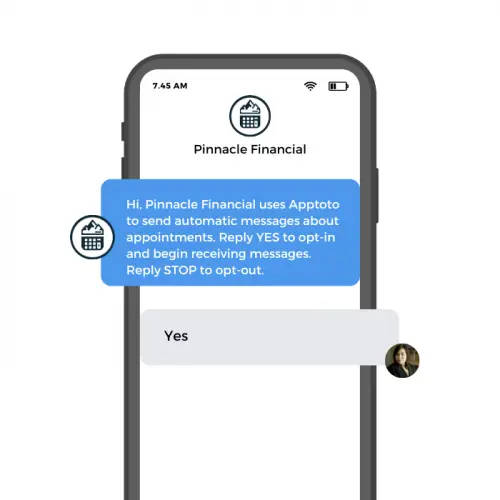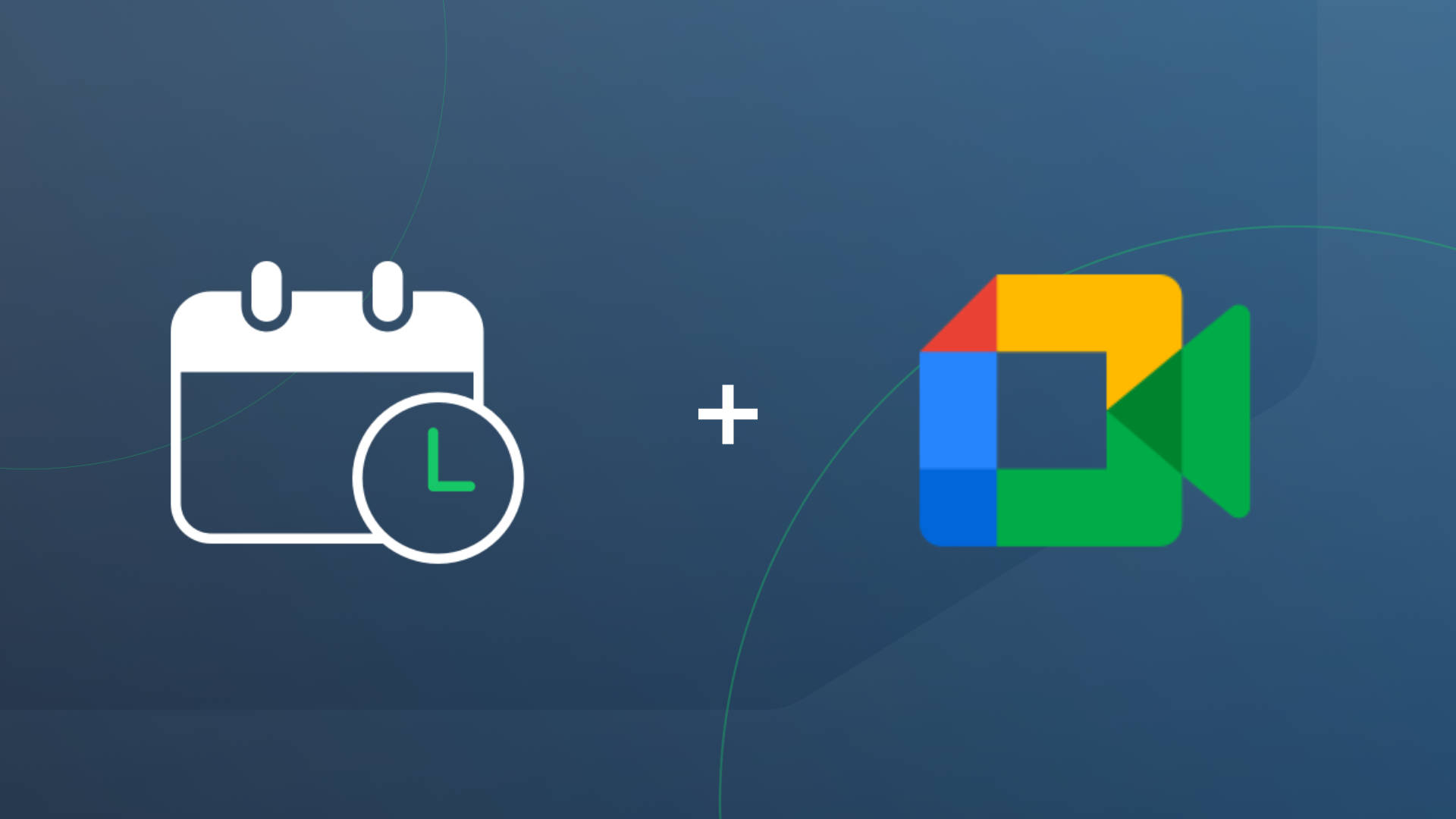Estimated reading time: 6 minutes
In a world where our devices buzz, beep, and blink with notifications around the clock, it’s never been more important for businesses to prioritize respectful and permission-based communication. This is especially true for appointment-based businesses. It’s a fine line to walk between staying connected with clients about their upcoming visits without crossing into the realm of excessive or intrusive messaging.
Overzealous or spammy text messaging is one of the reasons laws like the U.S.’s Telephone Consumer Protection Act (TCPA) and E.U.’s General Data Protection Regulation (GDPR) exist. These regulations require businesses to obtain consent to send marketing text messages to current and prospective clients or risk costly fines. And yes, appointment reminders can occasionally fall into the category of promotional texts.
With countless priorities demanding your attention daily, manually collecting and tracking client consent is simply not feasible. Thankfully, platforms like Apptoto have automated tools to help your business manage text message consent collection! Learn why consent collection is vital, the differences between consent levels, and how to automate this process for your business.
Text Messaging Consent Levels: Initial Consent and Double Opt-in
In order to meet SMS compliance regulations, businesses must get consumers’ consent before sending marketing text messages to their mobile devices. There are a few ways to do so: initial consent and double opt-in.
Initial Consent is the first step in establishing a text message channel between a business and its client. It’s a straightforward notification informing clients they will receive messages from your company and gives them an immediate opportunity to opt-out. By not responding STOP to the initial consent message, the client implicitly shows they want to receive messages from your business. An example initial consent message might be:
“Hi, Best Company, Inc. uses Apptoto to send automatic messages about appointments. Reply STOP to opt-out.”
Double Opt-in goes a step further by requiring an affirmative response from a client before the business can send them appointment reminders or additional text messages. This method ensures that only those who explicitly consent will receive further communications. An example of a double opt-in message is:
“Hi, Best Company, Inc. uses Apptoto to send automatic messages about appointments. Reply YES to opt-in and begin receiving messages. Reply STOP to opt-out.”
The Importance of Consent in Communication
In an era where privacy concerns and data protection laws like GDPR and CCPA are top of mind, obtaining explicit consent from clients is not just about compliance; it’s about respecting client preferences and fostering a culture of trust. Here’s why initial consent and double opt-in are pivotal:
Compliance with Laws and Regulations
First and foremost, by collecting client consent to text them, you are adhering to legal standards, which is imperative. Around the world, laws increasingly mandate clear consent for electronic communications, making practices like initial consent and double opt-in not only best practices but also legal requirements. By implementing these consent mechanisms, businesses protect themselves from legal repercussions and fines.
Building Trust with Clients
When clients receive unsolicited messages, it can quickly erode trust and damage the business-client relationship. By seeking consent, businesses demonstrate respect for personal boundaries and preferences, laying the groundwork for a relationship based on trust and mutual respect. Likewise, clients appreciate having control over the communications they receive, leading to higher satisfaction and loyalty.
Enhancing Engagement
Consent-based messaging ensures that the clients who choose to receive your communications are genuinely interested in what you have to say. It also gives transparency into the type of messages the client will receive. When you use Apptoto, your clients know they will receive appointment reminder messages. Text messages receive higher engagement and more productive outcomes since they target an audience that finds them relevant and valuable.
Reducing Opt-out Rates & Communication Costs
Businesses can significantly reduce opt-out rates by filtering out those who are not interested in receiving messages right from the start. Your business benefits from a cleaner, more engaged contact list. It also improves the overall effectiveness of reminders and other messaging Campaigns. Likewise, companies can reduce wasted text message credits and costs by eliminating messages sent to uninterested parties.
Implementing Consent-Based Messaging with Apptoto
Apptoto makes it simple for appointment-based businesses to obtain and manage client consent with automation.
Setting Up Initial Consent Messages
If you enable initial consent, Apptoto will send a message to any new client or phone number indicating your company will send them automatic appointment messages. This process automatically happens before they receive their first appointment reminder. To enable initial consent, navigate to your Messaging tab and Consent settings in Apptoto. Find the “Initial Consent Message” section and click the checkbox. Preview the consent message and make edits before saving your changes.

Double Opt-In Configuration
In the same “Initial Consent Message” section, you can activate the double opt-in feature by checking “Require Double Opt-in before sending actual messages.” The Double Opt-In message requires the recipient to respond “YES” if they want to receive your text messages. If they answer no or do not respond, they will not receive any text messages from your business (appointment reminder or otherwise).

Customization and Personalization
Understanding that one size does not fit all, Apptoto allows businesses to customize and personalize consent messages to match their brand’s voice and identity. It’s important to note that significant changes to the phrasing may result in carrier violations and your messages being filtered/not received.
Conclusion
The shift towards consent-based messaging is not just a legal requirement but a strategic advantage for appointment-based businesses. By implementing initial consent or double opt-in messages, companies can achieve SMS compliance, build trust, improve engagement, and, ultimately, forge stronger relationships with their clients. Embracing consent-first messaging is not just about avoiding penalties; it’s about respecting your clients and building a foundation for long-term success.
Apptoto is thrilled to provide businesses with the tools to navigate this process quickly and confidently. Please check out our product release notes and step-by-step walkthrough for more information on collecting consent from your clients automatically. And as always, don’t hesistate to contact our incredible customer success team for additional assistance.
THIS INFORMATION IS NOT TO BE USED AS A SUBSTITUTE FOR LEGAL COUNSEL. You are responsible for abiding by federal and state laws applicable to your use of Apptoto (Go-Cort, Inc.) services. Please refer to the Terms of Service and EULA for more information.




